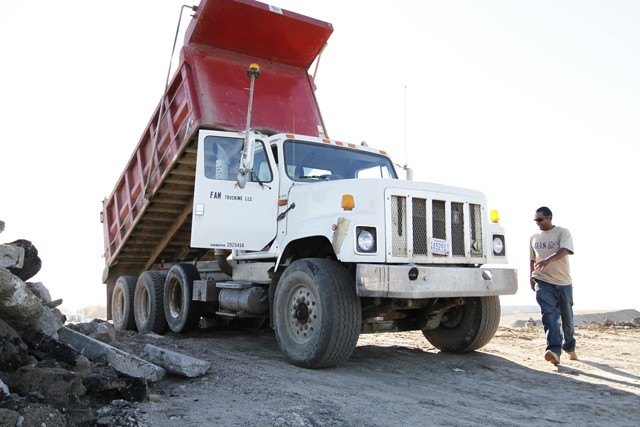Despite MinneapolisâÄô commitment to contract with minority- and women-owned businesses, the city ranks the second worst out of the 50 largest cities in the United States in that metric, according to an independent study.
Now, after two years of collecting data, the city will be releasing its own disparity study Oct. 15, examining affirmative action in its purchasing and contracting program.
âÄúWe have a responsibility to the people who live, work and pay taxes in this city to make sure that the resources are being used and distributed wisely and fairly,âÄù said Velma Korbel, executive director of the cityâÄôs civil rights department.
The cityâÄôs study will look at the number of women- and minority-owned businesses available to assist contractors and also the number of contracts the city has made with those groups.
The results will determine how the city will amend its current Small and Underutilized Business Program, which ensures there is a race-based purchasing and contracting program.
A public hearing will be held in either November or December to discuss the results, Korbel said.
Under the SUBP, all projects receiving more than $50,000 in aid from the city are required to submit methods on how the project will use a diverse workforce.
Since the program was established in 1999, it must go under review using the results of disparity studies to show if itâÄôs necessary. If the latest results of the study show there is no disparity, the program will be cut.
Because of this program, minority-owned businesses participated in 8 percent of city-assisted projects in 2009, earning $7.9 million. Women-owned businesses participated in 11 percent of the projects, earning $10.4 million, according to a 2009 SUBP year-end report.
The percentages were based on the availability of the groups, their abilities and the percentage goals set by the disparity evidence.
âÄúWe feel that itâÄôs imperative that that type of program exists,âÄù Association of Women Contractors Executive Director Barb Christensen said. âÄúI think itâÄôs important to level the playing field with small businesses who canâÄôt necessarily compete.âÄù
One of the reasons small women- and minority-owned businesses get left behind is because they canâÄôt afford to offer the same low prices larger companies can, Christensen said.
âÄúIt really goes back to what the disparity study shows,âÄù Christensen said. âÄúWe really work hard to make sure that it [exists] and that it is working properly.âÄù
While city-assisted projects will often have goals to include women- and minority-owned businesses, it can be hard to find a company with the right size and experience to do the work.
To solve this dilemma, civil rights commissioner Michael McHugh organized the Midwest Construction Group to help firms meet or exceed their contract goals with small women- and minority-owned businesses.
âÄúIt really opens the door for small companies to work on larger projects,âÄù McHugh said. âÄúItâÄôs easier to stay on projects and stay in business once you have that little bridge.âÄù
One of the groups formed under the larger organization is a group of minority-owned and operated trucking companies who were able to contract with the Metropolitan Council to work on the light rail.
âÄúWe came together as a group to bid on a larger project that otherwise we wouldnâÄôt have been able to bid on individually,âÄù McHugh said. âÄúAnd thatâÄôs really the spirit of the SUBP âĦ to be able to come together and work on projects.âÄù
The group won the largest contract given to a minority group by the Met Council, which has historically struggled to meet its affirmative action goals for heavy highway construction, McHugh said.
âÄúThereâÄôs definitely evidence of inequality and disparity between non-minority males and minority females in the business world,âÄù McHugh said of the disparity study. âÄúItâÄôs important to be able to have this program in place so theyâÄôll be able to further narrow that gap.âÄù
City to bolster contracting with minority groups
Minneapolis ranks low nationally for ties with minority-owned businesses.

Image by Joe Michaud-Scorza
Chandrashaker Bhagwandin dumps a load of road material from the Central Corridor construction site in Inver Grove Heights on Tuesday.
Published October 6, 2010
















